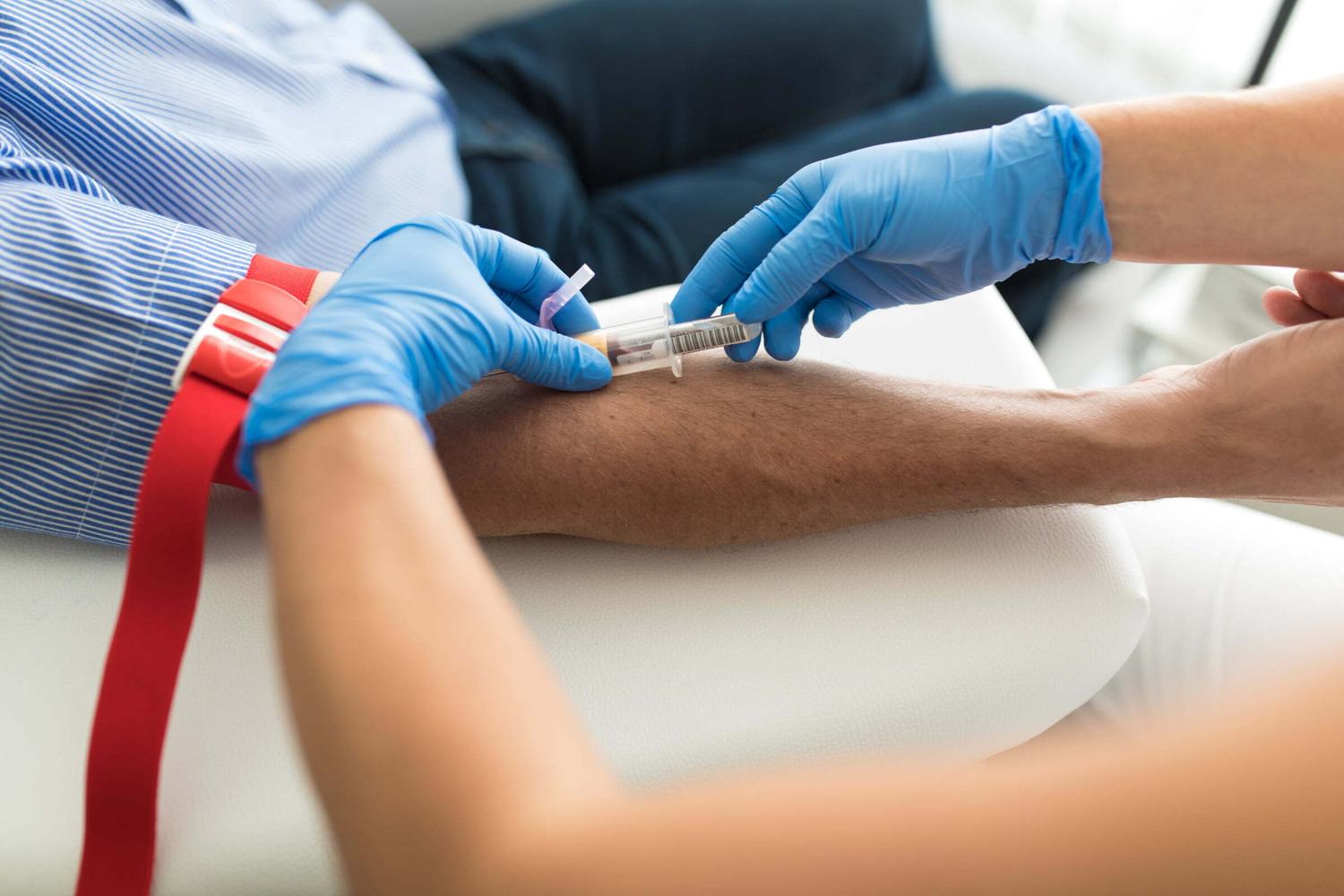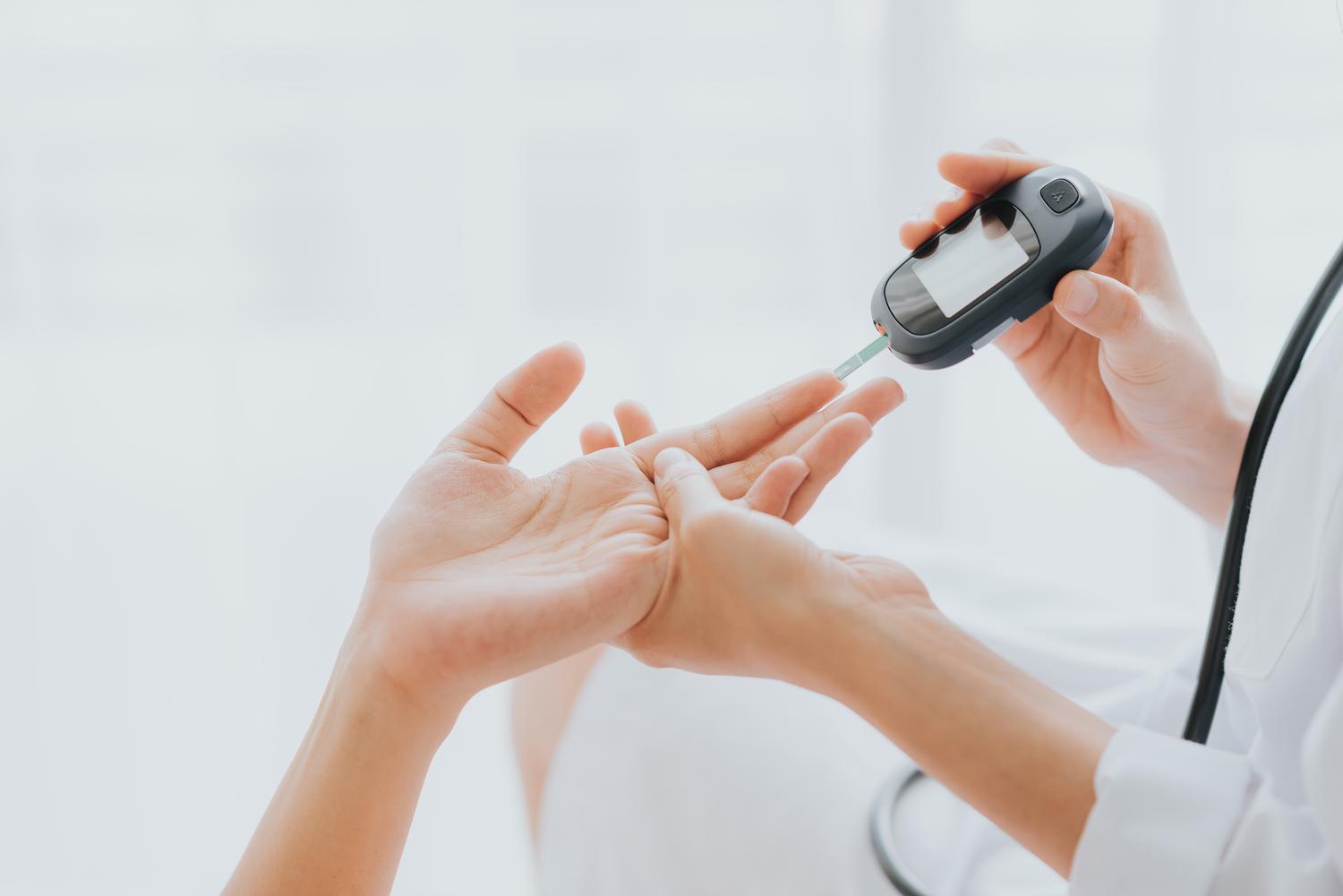Can You Get HbA1c Lab Tests Online?
Thanks to convenient online platforms like Sesame, you can book, schedule, and pay for an HbA1c test near you - without ever stepping into a doctor's office. Sesame has partnered with over 1,500 Quest Diagnostic locations to offer blood testing - such as an HbA1c - at affordable cash prices, without insurance. Sesame has partnered with over 1,500 Quest Diagnostic locations to offer blood testing - such as HbA1c tests - without having to see a doctor first. When you visit a doctor’s office, you will usually have to pay for both the blood test and the doctor’s order for the test. When you schedule your blood test online through Sesame, the price of the doctor's order is included with the price of the test. With labs purchased through Sesame, you are guaranteed the best cash price for your HbA1c test - no insurance needed.
If you’re ready to book a lab test, follow these simple steps:
- Search for the type of lab test you are looking for (e.g., “Comprehensive Metabolic Panel”, or “Testosterone Lab Test”).
- Browse Quest Diagnostics locations to find the clinic that is most convenient for you.
- Either book a walk-in appointment or schedule a visit for a time that works best for you.
- Save 50-60% on your test with our online-only prices. Pay a one-time price upfront without ever having to see a doctor.
- We send immediately send your order to the clinic of your choosing so that you can get your testing done that very same day. Either head to the office for a walk-in appointment, or show up at your scheduled appointment time.
In most cases, you’ll get your results within 24 hours of your test. If your results require a follow-up appointment, we will advise you on the next steps.
Can’t find the test you’re looking for? Feel free to contact us at +1 (877) 947-6411.
What is an HbA1c Lab Test?
Hemoglobin A1c Lab Tests, also called A1c, HbA1c, or glycated hemoglobin is a test that measures the average amount of blood sugar (also called glucose) attached to your hemoglobin. Hemoglobin is a protein that helps carry oxygen throughout your body. HbA1c lab tests are usually ordered to manage or screen for prediabetes and diabetes in adults.
What is diabetes?
Diabetes is a chronic condition in which the body does not properly process food into energy. When we eat food (particularly carbohydrates) the body turns it into glucose (sugar), the substance our body uses as energy. Insulin - a naturally occurring hormone - is made by the pancreas to help cells absorb glucose. Diabetes causes the body to either not produce enough insulin or use it inefficiently. This causes the blood sugar, or blood glucose levels, to get too high (hyperglycemia).
What are the different types of diabetes?
There are four primary types of diabetes, which may be screened for or managed with regular HbA1C tests. The different forms of diabetes are detailed below.
- Prediabetes: This is when your blood sugar is too high, but not high enough for your doctor to diagnose it as diabetes. It can, however, increase your risk of type 2 diabetes and heart disease. More than a third of all people in the United States have prediabetes, though most are unaware of it. Exercising more and losing weight can lower the risk of it progressing.
Type 1 diabetes: Also known as insulin-dependent diabetes, type 1 diabetes is an autoimmune condition. It occurs when your body attacks your pancreas with antibodies causing the organ to stop producing insulin. Type 1 diabetes usually appears in adolescence. Most people are born with Type 1 diabetes and do not develop the disease as a result of obesity or other health conditions. Genetics is the most common risk factor for this form of diabetes
- Type 2 diabetes: With type 2 diabetes, the pancreas usually produces some insulin, but either doesn't produce enough, or the body doesn't use it correctly. About 90% of people who have diabetes have type 2. People who are obese (more than 20% over their target body weight) are at higher risk of type 2 diabetes.
- Gestational diabetes: Pregnancy often causes some amount of insulin resistance. When your body is unable to adequately manage blood sugar levels as a result of hormone changes during pregnancy, you may develop gestational diabetes. Gestational diabetes occurs in about 2%-10% of pregnancies and it usually goes away after birth. However, about 10% of women who have gestational diabetes are diagnosed with type 2 diabetes later on.
How are HbA1C Tests performed?
To diagnose prediabetes or diabetes, the HbA1C test is performed by taking a sample of blood via a needle inserted in the arm. You will usually receive your results a day or two after your second test.
As a form of diabetes management, a smaller amount of blood will be drawn via a prick on the tip of the finger. This, and the intravenous needle insertion, may be slightly painful, but this sensation is generally mild and will pass within a few seconds.
How do I prepare for an A1c test?
No preparation is needed. Feel free to eat and drink normally before the test.
How long does it take to book an HbA1C Lab Test?
Sesame is the fastest way to book an HbA1C lab test - at the best cash price. Use our booking platform to schedule a lab test directly at the most convenient Quest lab near you. This takes about 2 minutes. Once you’ve finished checking out, we send your order directly to the lab so you can get your blood work done that day - often with results in 24 hours. That’s convenience you won’t find anywhere else.




